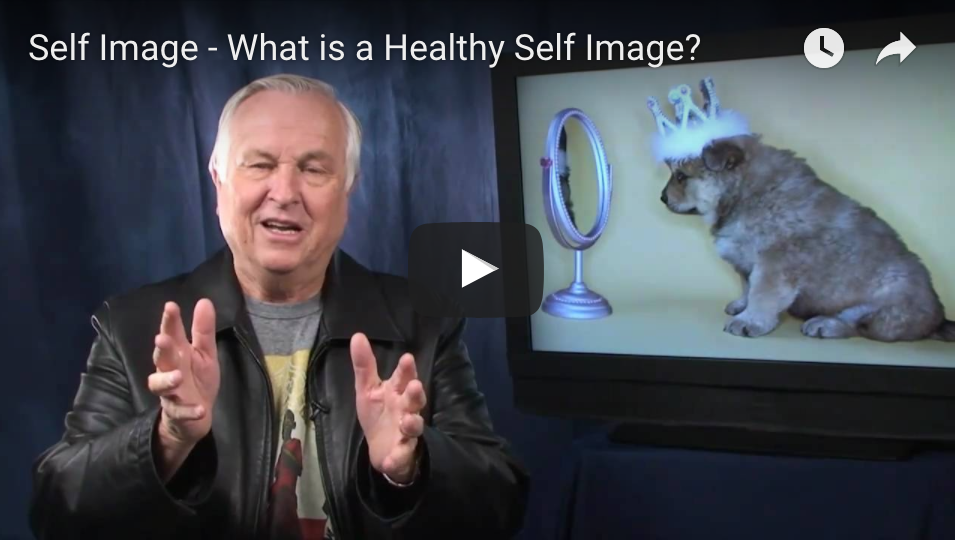
Ladies, in this post in our series exploring our true identity, we’re going to look at a touchy subject: the influence family, specifically our parents, has on our self-worth.
If your parents cherished you, you likely have a positive, healthy self-image. If instead you were coddled, you might possess a sense of entitlement. But if your parents constantly berated you or criticized you, you may picture yourself like Joanna, whom we mentioned in last week’s blog post. In Joanna’s own words, she views herself to be a slug; someone who can be counted on to mess up.
If your childhood home wasn’t picture-perfect, remember this: parents often find themselves parenting the way their parents interacted with them.
God’s Intended Role for Parents
What is God’s ideal plan for developing a healthy sense of identity in children?
God’s optimum design begins with parents who fully commit to loving God and one another. This couple then becomes the primary conduit of God’s love for their children. As the children receive their loving care, absorb biblical instruction, and observe their parents’ godly example, they are able to view themselves through the lens of God’s grace.
But many of us didn’t grow up in this environment.
If our parents held negative evaluations of themselves, us, and God, it was impossible for us to come to trust in God’s unconditional love for us. Young children have no clear picture of who they are apart from the input they receive. They see themselves through the eyes of their caretakers. And they typically view themselves through the lens of their most dominant caretaker. Children who are repeatedly told that they are lacking accept that evaluation, and tend to live it out, unless other people come into their life and help them to see themselves as God does.
We all need people to think about us and safely convey appropriate care, interest, concern, and support for us.
We all desire and need recognition, for others to notice the good that exists in us. Unfortunately, some of our parents, including Joanna’s dad, choose to focus on our failings and imperfections. As a teen, I can remember asking my mom why she ignored the “A”s on my report card, to hone in on the one “C+.” Her reply: “It’s a given that I expect you to be capable of an A in every subject. So why should I need to commend you on getting one?” My motivation to please my mom took a nosedive. I mean, what was the point of trying, if every time I failed to achieve perfection I was going to be made to feel stupid for it?
A child who hears, “I know you can do it, sweetheart,” will have the courage to take risks.
A child who always hears that she never measures up will approach every obstacle in life with fear. Another side effect: that child is likely to dump criticism and judgement on other people, from learning the pattern from her parents.
Children model their parents’ behavior — good or bad — even if they recognize that it’s hurtful. My family relied on sarcasm to convey feelings; it was simply too vulnerable to be authentically open and real.
What young children don’t realize is that their parents’ view of them is entirely subjective. It may NOT be truth, even though the child starts to believe it is. Because a parent can only model what she or he is capable of giving. So if parents see God’s light clearly in themselves, they’ll be able to share and shine that light on their children. But if they are living with a shadowy self-portrait, they will drive their children into the shadows as well.
Breaking the Chains of Unloving Parents
How did your parents relate to you? Did they treat you like a responsibility, a burden, or a distraction? Or did they make you feel special and valued, with a unique contribution to offer the world?
If you experienced a lot of negativity as a child, know that God promises to use it for your good.
God uses ALL circumstances in our lives, the good and the bad, to prepare us for what He will do in us and through us. Everything that happens to us is an occasion for God to exercise His comfort us. And to prepare us to have the ability to comfort others.
If you’re having trouble forgiving a parent for their poor parenting of you, consider believing this: Your parents did the best they could.
Hear me out. I’m not saying that they did the BEST job possible. I’m saying they did the best job THEY could at the time. Truth: parents can’t give what they don’t have or know how to give. Is it fair? No. Is it sad? YES.
It breaks my heart to see parents poorly model God’s love. But it breaks my heart way worse to see those grown children stay enslaved by the chains of a flat-out wrong self-portrait. Like a grown elephant that accepts that the metal chain that once was strong enough to hold him as a baby STILL has the strength to do so. They call that learned helplessness.
God’s love, as demonstrated by loving, healthy people, can break the chains of the wrong messaging we’ve received. God uses people throughout our lives to mold us into the women He intends for us to be.
Take Sheila, for example. As a child and teen, Sheila desperately wanted her parents’ approval. But to relieve the stress of trying to meet their exacting demands, Sheila began cutting herself. When her mother discovered Sheila’s secret, she shamed Sheila. Sheila tried to stop cutting herself, but couldn’t. As her mother continued to shame her, Sheila began to believe what her mother said about her: She was damaged goods.
But God wanted to correct Sheila’s wrong self-view. He placed a compassionate, mature Sunday School teacher in Sheila’s life.
Through their relationship, Sheila slowly began to understand and trust that God viewed her as fully valuable and competent, no matter how disappointed her parents were in her. Sheila’s desire to cut herself stopped when she gratefully accepted the gift of God’s constant acceptance and affection. Sheila is now able to balance their expectations with God’s unceasing grace. Sheila’s self-portrait shines!
Sheila used scripture to remind herself of her value in Christ. She adopted these four scriptures to bring her self-portrait out of the shadows and into the light:
-
God completely accepts me (Colossians 1:21-22).
-
He deeply loves me (1 John 4:9-10).
-
He fully forgives me (Romans 5:1).
-
God is working for my good in all things (Romans 8:28).
Some days, in the rough and raw moments, it can be challenging to believe that God truly is working for our good. That He can bring beauty out of ashes. But God always keeps His promises! If visual reminders help you like they do Sheila, follow her example of jotting scripture onto index cards that you can post where you’ll frequently see them. As you read them, claim and believe God’s unconditional love for you!!! Christ, at the cross, willingly accepted the burden of our failing and weaknesses. And He stands, arms ever open, to welcome us as come to Him. GOD CARES!!!
Ladies, as you find healing, recognize that God may ask YOU to help other gals who are struggling to gain a clear view of their true self-identity. If He nudges you, act! Don’t let the moment pass! Even your warm smile, at just the right moment, might help one of our sisters in Christ to bask in His love. #awesome
See you next week, when we talk about how our secular society greatly influences our self-worth. Don’t miss it!
Our 12-Week Journey About Our True Personal Identity!
Part of rightly understanding our true personal identity requires that we know how God sees us. As our loving creator, God says two things to us: “You are my child,” and “You are chosen.” Do you sense God’s heart toward you? Can you wrap you mind around the truth that God was thinking about you before He even created the world?
Let that truth sink into the depth of your heart and mind. It may take a lot of determination on your part, but as you begin to realize just how valuable you are in God’s eyes, you will be able to break the chains that keep you from accepting and loving yourself. Ladies, we CAN drop the burden of what other people think — and the judgments we hold for ourselves!
During this 12-week blog series, we’ll post about personal identity. Each post will include a song to remind us of the truth of how God sees us. Our song this week is Never Been a Moment by Micah Tyler. Micah has it exactly right: There has NEVER been a moment when we were not loved by HIM. Accept this truth to experience the true joy of being YOU!
This blog series is based on Josh’s book See Yourself as God Sees You. It is our prayer that during this series you come to recognize and accept your true personal identity! God couldn’t love you more!














